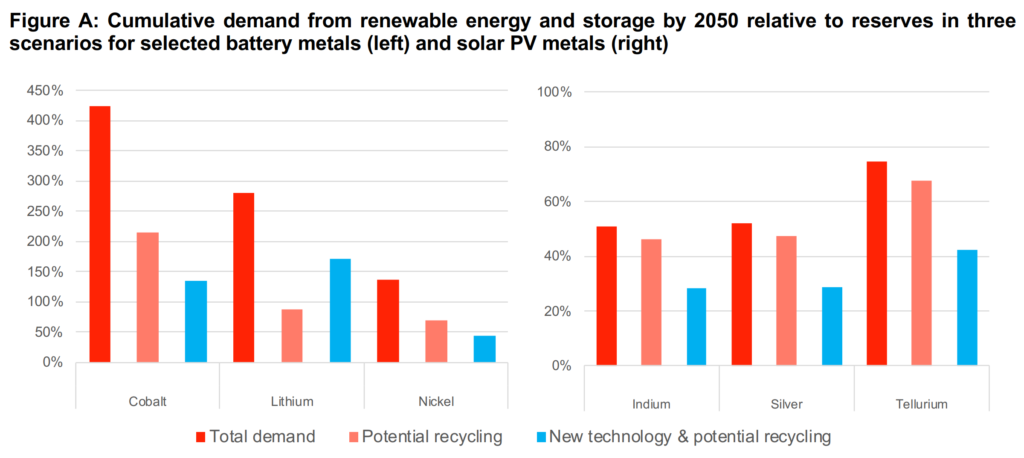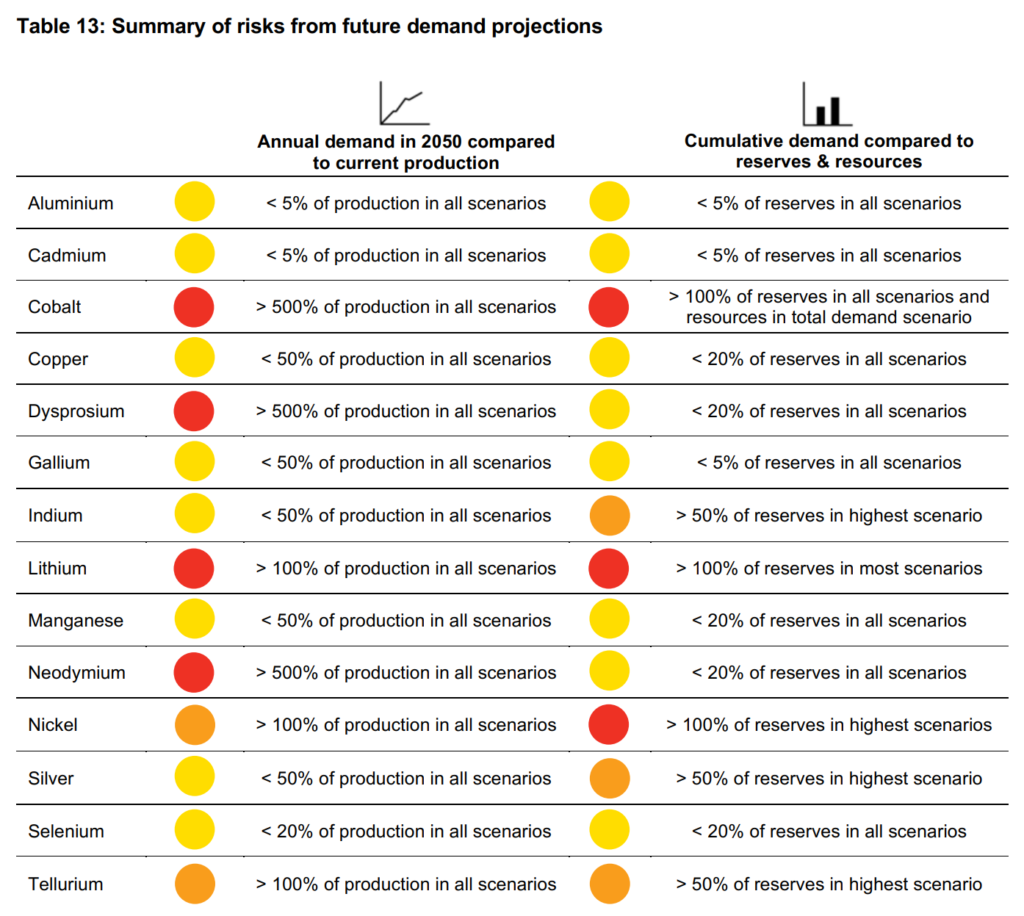Going 100 percent renewable power means a lot of dirty mining – “If not managed responsibly, this has the potential for new adverse environmental and social impacts”

By Naveena Sadasivam
17 April 2019
(Grist) – For more than a decade, indigenous communities in Alaska have been fighting to prevent the mining of copper and gold at Pebble Mine in Bristol Bay, home to the world’s largest sockeye salmon fishery and a crucial source of sustenance. The proposed mine, blocked under the Obama administration but inching forward under the Trump administration, has been billed by proponents as necessary to meet the growing demand for copper, which is used in wind turbines, batteries, and solar panels. Similar stories are playing out in Norway, where the Sámi community is fighting a copper mine, and in Papua New Guinea, where a company is proposing mining the seabed for gold and copper.
Weighing those trade-offs — between supporting mining in environmentally sensitive areas and sourcing metals needed to power renewables — is likely to become more common if countries continue generating more renewable energy. That’s according to a report out Wednesday from researchers at the Institute for Sustainable Futures at the University of Technology Sydney in Australia. The report, commissioned by the environmental organization Earthworks, finds that demand for metals such as copper, lithium and cobalt would skyrocket if countries around the world try to get their electric grids and transportation systems fully powered by renewable energy by 2050. Consequently, a rush to meet that demand could lead to more mining in countries with lax environmental and safety regulations and weak protections for workers.
“If not managed responsibly, this has the potential for new adverse environmental and social impacts,” the report says. [more]
Report: Going 100% renewable power means a lot of dirty mining

Over 50 Organizations Urge World Bank to Boost Recycling, Circular Economy & Non-Mining Solutions for a Truly Climate Smart Agenda
Washington, D.C., 30 April 2019 (Earthworks) – As the World Bank today launches its new ‘Climate-Smart Mining’ facility, organizations from around the world are urging the financial institution to prioritize recycling, circular economy, public transit, and other non-mining solutions as the primary components of its agenda. Efforts should also be made to bolster responsible sourcing.
To avert catastrophic climate change we support a just and rapid transition to a renewable energy economy, but promoting business-as-usual mining is not the answer. A truly “Climate-Smart” agenda would prioritize recycling, reuse, substitution and consumption changes before new mining,” stated Earthworks’ Mining Program Director Payal Sampat.
In a letter sent to the World Bank yesterday, over 50 organizations working with hundreds of mining-affected communities and workers around the world voiced their concerns about the World Bank’s expanding investment in mining without accompanying changes in mining practices or consumption patterns.
Added Ugo LaPointe of MiningWatch Canada: “We are alarmed to note that the World Bank has primarily partnered with mining companies in developing and launching its new Climate-Smart Mining initiative, largely putting mining company agendas and interests before much needed efforts to shift demand and increase protections for workers, communities and the environment.”
Metals mining is currently one of the world’s dirtiest industries, responsible for at least 10% of anthropogenic greenhouse gas emissions, and over 50% of all toxic solid wastes in many producing countries. Mining is linked to severe human rights abuses, violent conflict and unsafe working conditions in some parts of the world.
According to new research from University of Technology, Sydney’s Institute for Sustainable Futures, “Responsible Minerals Sourcing for Renewable Energy,” as demand for these scarce minerals skyrockets, the associated environmental and human impacts are likely to rise steeply as well.
Carlos Lozano, Senior Attorney with AIDA in Colombia, adds: “As a public financial institution, the World Bank is responsible for ensuring the sustainability of projects it finances, and should foster improved mining practices and truly renewable energy systems.”
Signatories point out there is a timely opportunity to scale up our dependence on clean, renewable energy sources, while scaling back our dependence on dirty mining. Doing so will require a concerted commitment from businesses, financial institutions, and governments to:
- Boost recycling and minimize toxicity: through incentives for minerals recycling, efficiency, product take-backs, and easily reusable, repairable and recyclable product design.
- Ensure responsible minerals sourcing: Where sourcing from mining operations is absolutely necessary, mining operations should adhere to stringent international environmental and human rights best-practices standards (such as those developed by the multi-stakeholder Initiative for Responsible Mining Assurance) with independent, third-party assurance of compliance, and chain-of-custody schemes that allow consumers to make informed decisions.
- Shift consumption and transportation: Prioritize “Smart City” design, invest in electric-powered public transit, and expand access to efficient public transit.
Sampat said: “It will take more than technological fixes to wean ourselves off fossil fuels and ensure equity in access to the benefits of clean energy. The World Bank shouldn’t be promoting new mining while the climate crisis offers an opportunity to rethink how societies, particularly wealthy ones, consume energy and products, and transport goods and people.”
For More Information
- University of Technology, Sydney’s Institute for Sustainable Futures: Responsible Minerals Sourcing for Renewable Energy
Contact
- Brendan McLaughlin, Earthworks, +1.206.892.8832
- Jamie Kneen, MiningWatch Canada, +1.613.761.2273